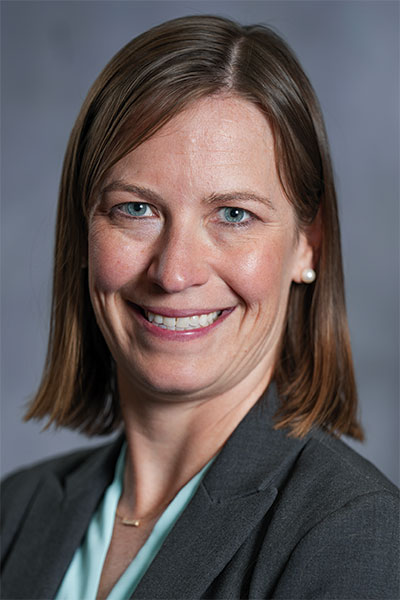For patients with sepsis, time is of the essence. Early antibiotics—ideally within one hour of identifying sepsis—can improve patient survival, but there are risks too. Indiscriminate use of antibiotics can lead to unnecessary toxicity and promote antimicrobial resistance, explained Kathryn Pendleton, MD, FCCP, Associate Professor of Medicine, Division of Pulmonary, Allergy, Critical Care, and Sleep Medicine, at the University of Minnesota.

Dr. Pendleton will chair the session, Getting Sepsis Done Right: A Pro-Con Debate, on Sunday, October 6, at 9:45 am ET, in Room 205A of the Boston Convention & Exhibition Center. The discussions will address two important topics in antibiotic timing and dosing.
In the first debate, Ryan Maves, MD, FCCP, Professor of Infectious Diseases at Wake Forest University School of Medicine, will argue for the early use of antibiotics, while Richard Wunderink, MD, FCCP, Professor of Pulmonary and Critical Care Medicine at Northwestern University Feinberg School of Medicine, will take the con position, focused on intensivist and antimicrobial stewardship.
“The first debate is a tale as old as time for sepsis,” Dr. Pendleton said. “Speakers will try to strike that delicate balance between the importance of early antibiotics for patients who are truly infected and being thoughtful stewards of antibiotics.”
The session will provide a framework for clinicians to be judicious in their approach to antibiotics. Speakers will discuss strategies to use antibiotics wisely in patients with sepsis or suspected sepsis, such as initial antibiotic selection and when and how to de-escalate treatment.
“Early antibiotics for sepsis save lives. Nobody’s disputing that,” Dr. Pendleton said. “We want attendees to consider whether there are situations in which they could hold off on antibiotics while considering which patients need antibiotics right away. Ultimately, we need to do our best at a population health level in terms of preventing the emergence of resistance and superbugs while doing the best we can for the patient in front of us.”
The second debate will address a more recent topic. Over the past few years, several studies have shown that, in treating infections in critically ill patients, continuous infusion of β-lactam antibiotics is associated with a lower risk of death compared with traditional intermittent dosing. Studies with other antibiotics did not show a benefit with continuous dosing. In this debate, Rodolfo Alpizar-Rivas, MD, Critical Care Specialist at Aurora St. Luke’s Medical Center, will present the case for continuous infusion β-lactams in critically ill patients, while Dr. Pendleton will discuss the arguments against it.
“We want to bring this conversation on antibiotic dosing to the forefront and review the most recent evidence,” she said. “Continuous infusion may achieve a higher consistent concentration of antibiotic that is better at fighting the infection, but there are important nuances in the data that should be considered in terms of dosing strategies.”
Join us at CHEST 2025
Save the date for the next Annual Meeting, October 19 to 22, 2025, in Chicago. CHEST 2025 will explore the latest advancements in pulmonary, critical care, and sleep medicine, with a focus on innovation and the future, just as the city itself embodies progress and reinvention.





